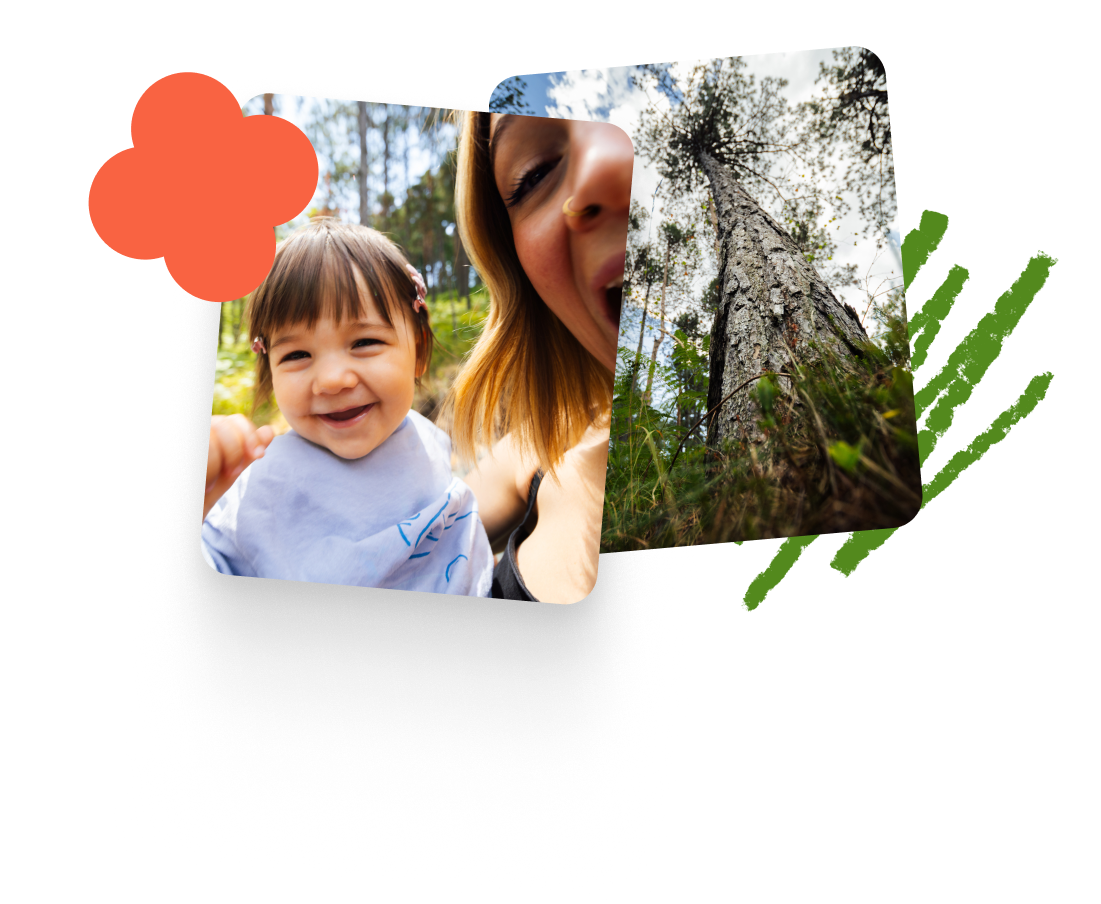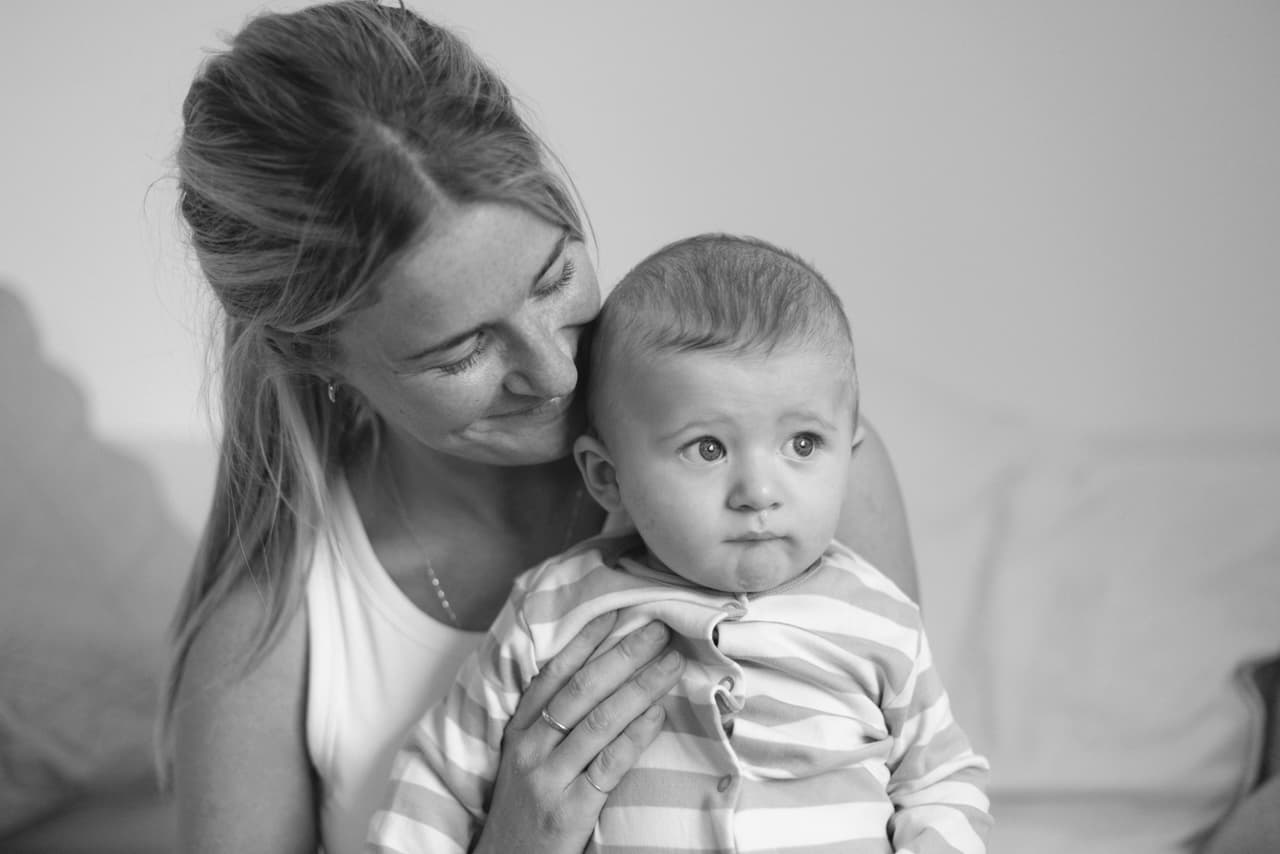
is now part of
Joy Parenting Club!
Families and care organisations using Heba will now have the option to also join Joy. For any questions, reach out to us at hello@heba.care

Families and care organisations using Heba will now have the option to also join Joy. For any questions, reach out to us at hello@heba.care

November 21, 2024
As this Cornish local says, being her son’s mum is the easiest thing she’s ever done – “but the extra shit that comes with it is really hard”.
Molly Somers spent five “perfect” days with her newborn son, Morven, after bringing him home from hospital. Then her baby inexplicably started having seizures.
“My partner Nick and I were sitting downstairs on the couch, literally here,” says Molly, speaking from her home in Cornwall in the UK. “Morven was in his Moses basket and he made a hiccupping noise – like two loud squeaks – and we just instinctively knew they weren’t right.”
Molly remembers seeing Morven lying on his back with his left arm jerking upright, while his face turned grey. “This was a five-day-old baby. We had no idea what was going on, but we just knew it was wrong,” she says.
After calling an ambulance and being told, repeatedly, that her baby was fine, the family embarked on a 10-day high-dependency unit (HDU) stay where Morven continued to have seizures and a barrage of tests, including an EEG that confirmed he had epilepsy.
Morven also had whole-genome sequencing, the results of which would see his mother getting a phone call a couple of months later.
“We were home – navigating the trauma of the hospital, newborn life and seizures – and it was the epilepsy consultant’s secretary saying, ‘We’ve got your genetic results. Can you come in tomorrow? You need to bring your parents’”.
Molly wondered at the time, why would they get us to bring our parents?
“I was living in this world of, ‘he’s going to grow out of this’,” she recalls. “Morven couldn’t lift his head up when he was on his front but I was thinking, it must be because of his epilepsy medication. Then we sat in that room and they told us that Morven has a rare genetic condition.”
That condition is called STXBP1 and it’s only known to be shared by a few hundred other people in the world. Molly, Nick and their parents were told a list of things that Morven may never do.
“I looked at my mum and she had her head in her hands and she was rocking back and forward,” says Molly, who has four brothers – one of whom, Charlie, has an unrelated and far less rare genetic condition.
“I said, my brother’s got Down syndrome, I know all about special needs. I don’t care, just sort the seizures!” Molly recalls. “I was in denial for weeks until we got on top of the seizures and then it was like, oh my God, what the heck does this mean?”
A year on from that day, one-year-old Morven and his parents are fresh back from holidaying in Spain.
Here, Molly shares some of what she’s learned on her rollercoaster ride as a parent of a rare child – and how her experience as a sibling in the SEND (special educational needs and disabilities) community shapes her perspective.

Once you learned about Morven’s genetic condition, how did day-to-day life change?
We were quickly thrown into a world of appointments with Morven’s huge care team. Paediatricians, nurses, physios, OT’s, dysphagia specialists, dieticians, ophthalmology and the full shabang. So, whilst we were learning how to manage seizures and navigating the uncertain and incredibly scary world of epilepsy, we were also taking on bucket loads of information and sailing a new boat through uncharted waters.
We started working with our incredible Portage (home-visiting educational service for pre-school children with SEND) worker, Eve, who does fortnightly developmental play with Morv. She’s gotten to know us as a family and she’ll stay with us now until Morven goes to nursery or school. She’s been life changing and we love her visits.
Where was your head at in those early weeks of navigating your new reality?
I was scared! The trauma of Morven’s fifth day of life really walked with me – it still does – and I worried we would end up back in HDU. It was a very sad initiation into this world we now find ourselves in. I didn’t want to leave the house, I was worried when I was on my own that I’d need to call an ambulance, I literally didn’t take my eyes off Morv. That worry never goes away. Epilepsy comes with a constant state of hyper-vigilance and anxiety. There is no guarantee medicines will work, nor that they won’t come with side effects.
At first, I thought it was all very unfair and I couldn’t understand how such a rare condition affected us when we didn’t carry the gene. It seemed like everyone else around me had it so easy. At times, Morv’s seizures have been really bad. I used to cuddle him to sleep in complete bliss and then he’d be woken by a focal seizure and I really struggled with how cruel it was that a precious moment could be stolen.
I knew what the doctors were saying might one day be our reality, but it seemed so far off and I’ve always said Morv will not be defined by a string of letters and numbers. He will write his own story. We did have many dark days in the beginning, but every day Morv also brought such light and, slowly, the light took over the darkness.
I guess I have a different view on the complex-needs side of it all because of my brother, Charlie. I’m very familiar with the SEND space as I grew up with every aspect of it. Charlie went to a special-needs school in town and I went to every single school play and sports day. His school was the happiest place in the world. Anything Charlie has done I’ve been right there with him and I’ve seen every end of every spectrum of disability. Sometimes I feel like my whole life led me to Morv.

Have your parents given you advice about raising a disabled child?
Yes – and this will make you laugh. Charlie and I spent our whole childhoods getting in trouble because we used to stick our fingers up and stick our tongues out at people when they stared at Charlie. Over the years I became numb to it but when I was younger, it used to really annoy me. Mum and Dad say not to give a flying fig about what other people think or say.
My mum is my best friend – and Morv’s too. My parents are just so proud. They just say to celebrate the baby in front of you and to be proud of every little thing they achieve – and to not be too hard on myself, because showing up every day is the best I can do. Also to not look too far in the future, which is golden advice.
When – and how – did you share about Morven’s condition with your wider circles?
It took us a long time to tell people what was going on and we were getting hurt by things that people were saying to us. We live in a small town, Morv is a big babe and Nick plays rugby, so lots of people would say ‘He’s going to be a rugby player and he’ll be running around before you know it!’ Those comments hurt but nobody knew, because we hadn’t said anything except to our close people.
I was finding it hard to explain what we were experiencing so on International Epilepsy Awareness Day in March – known as Purple day – I put up a post that started with:
“Morven’s first 8.5 months earthside have brought unimaginable love, light and hardships that we are now ready to share (a small instagram sized chunk of).”
It was a weight off my shoulders and we had such an outpouring of love in response. I still don’t know the right words to explain Morven’s condition. It’s so rare and comes with such a long list of potential complications that I find it tricky to explain without saying it negatively – which isn’t in my nature when talking about Morv.
What else have you learned, with a year of rare parenting under your belt?
It’s about good days and bad days, isn’t it? We relish in the good days and enjoy walking our dogs and spending time with my mum and family – including six nieces and nephews – and friends. When things are steady you have to try, no matter how tricky, to ease into it and just live a happy life. Then we just wallow in the bad days when they come, too, and that’s fine.
Life certainly takes a bit more planning now. Keeping on top of ordering medicines, getting to our appointments each week and blending all of Morven’s meals on top of normal life is like a full-time job.
I’ve always said being Morven’s mum is the best and easiest thing I’ve ever done, but the extra shit that comes with it is really hard.
What advice do you have for parents who are back where you were, a year ago?
I look back at pictures from a year ago of Nick and I smiling through the heartache – and it’s only now that I believe everyone was telling the truth when they told us we were strong. I am proud of how far we have come.
Feel all the feels because they are completely valid. Surround yourself with good people and tell them how you’re feeling. The disability parent community online is wonderful but, in Cornwall, there aren’t any babies like Morv so it can be isolating. My parents, family, best friends and our care team who connect, cherish and embrace Morv provide endless support and an unmatched depth of love for me, too. You just have to keep sailing your own boat and pick your battles.
Lastly, don’t ever lose sight of what a complete and utter blessing your baby is. Morv is my world and though he might not be doing what other babies do, he makes the sun shine brighter. Keep on adoring your baby and be proud, always, that they were made for you and you were made to be their mum.